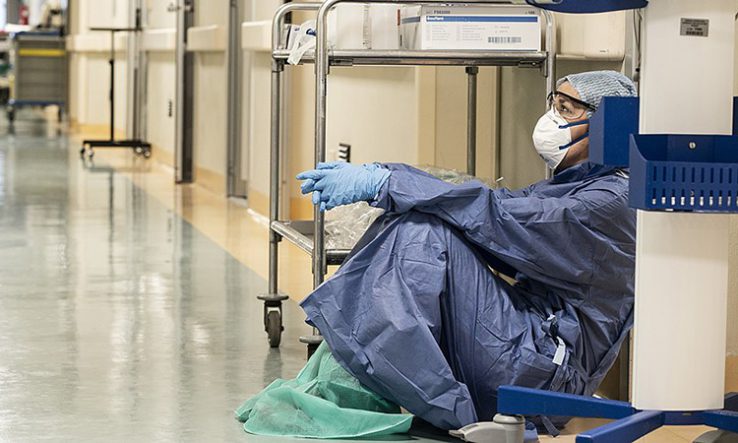
Image: Alberto Giuliani [CC BY-SA 4.0], via Wikimedia Commons
Easy access to research data and swift collaboration could improve future response, academy report says
Dutch scientists need to get better at collaborating and sharing research data in order to be ready for the next outbreak of an infectious disease, the Royal Netherlands Academy of Arts and Sciences (KNAW) has said.
In a report on pandemic preparedness, KNAW urged universities and the government to put in place the right conditions to improve science’s pandemic preparedness, so as to be able to better meet future crises. It said that, at the start of the Covid-19 pandemic, the Netherlands did not have the proper scientific infrastructure to tackle the virus, leading to a response that, according to the report, left “many questions unanswered”.
The report stated that, during a pandemic event, science must respond to the needs of different segments of society: doctors need treatments for the disease, policymakers need to make complex decisions, and the general public need to know what behaviours will limit the disease’s spread.
Collaboration
A KNAW advisory committee, chaired by sociologist Pearl Dykstra from the Erasmus University Rotterdam, mapped out the lessons learned from Covid-19 for the report. The committee noted that scientists need to collaborate more, both within and beyond their disciplines.
More collaboration would reduce the risk of research project duplication while also dent the “avalanche” of new results that characterised the coronavirus response, the authors said.
The report noted that, early on in the pandemic, Dutch science focused too heavily on the biomedical factors of the disease, as well as on research in academic hospitals and health centres. By including more information from public health services and primary carers, scientists would have gathered a more nuanced picture of the problems caused by the virus and the course the pandemic was taking, KNAW argued.
The report remarked that contributions and insights from the humanities and social sciences proved “indispensable” in combating the pandemic and setting up the complex measures required, but were only consulted belatedly. Similarly, the technical sciences and engineering, as well as the physical sciences, were not included in Covid-19 research until well into the pandemic, KNAW said.
Data links
The KNAW committee noted that data was not well shared throughout the Dutch scientific community at the height of the pandemic. Medical and social science data were not properly collected and pooled, while reluctance to share source data between institutions prevented scientific scrutiny, the authors said.
In addition, the report found that the decentralised Dutch public health system limited data-sharing, as did the absence of links between databases belonging to different entities. The authors noted that such links are well established in Denmark, the United Kingdom and Ireland, and suggested that the Netherlands should copy these approaches.
For Dutch science to help fight a future outbreak, all knowledge from the healthcare sector should be included from the start, KNAW concluded. It said that scientists from different disciplines should be able to contribute to the common knowledge pool and cooperate with each other seamlessly.
However, to do this, researchers need a digital network that provides ongoing knowledge synthesis through which they can access complex knowledge. To achieve this, the ministry of science should strengthen national data infrastructure and set up rules and protocols to allow for quick data access in emergencies, KNAW said.